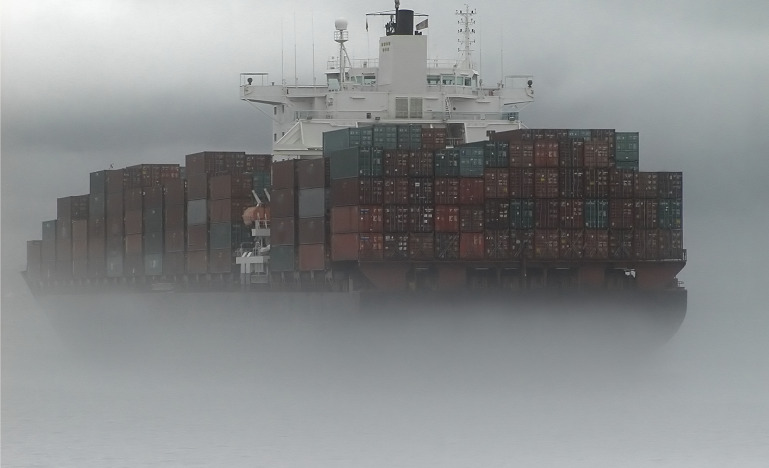Fog of trade war
The rise of protectionism is dramatically altering the risk landscape for in-house lawyers. But there are opportunities as well.

“NAFTA Replacement Faces Opposition in Congress” “Britain Charges Ahead with No-Deal Brexit.” “China Blocks Canadian Canola and Pork.” These daily headlines are a constant reminder of a new world of trade uncertainty.
For trade lawyers and in-house counsel, it means a flood of work from nervous clients and concerned executives. But it isn't easy adjusting to an environment where established practices are being questioned or simply tossed aside by aggressive political leaders.
“What we thought was the established rule of order in international trade has simply been shattered by Mr. Trump,” says Larry Herman, a Toronto trade lawyer, and frequent commentator on trade issues. “Regrettably, we’re now in an era where there is less order, less certainty, and less reliability.”
“I’ve become a student of trade history, and I would say that this is really unprecedented in modern times in terms of the upheaval that is happening,” says Elliot Burger, senior legal counsel at Linamar Corp., one of Canada’s largest auto components makers. The globalization of the 1990s is being challenged in a dramatic fashion. “It’s the world order tearing itself apart and reformatting itself,” says Burger.
Because of its global footprint—Linamar has 65 facilities in 25 or so countries—and because the automotive industry is particularly sensitive to trade agreements, much of Burger’s work is trade-related. But he admits that’s the exception for in-house counsel.
In-house counsel in many Canadian companies can usually fill their days doing contracts, securities, or real estate work. “Most in-house counsel are spending less than 5 per cent of their time worrying about trade law,” said Burger.
Heather Innes spent more than two decades as in-house counsel for General Motors Canada before becoming an independent legal adviser at Lexsage. For Canadian companies exporting goods or services abroad, she says it’s becoming increasingly important to understand the jungle of trade rules internationally.
“There are hundreds of free trade agreements in the world today – Canada has 15 now with over 40 countries – and the rules are all different,” says Innes. “You cannot just set up one system. You have to be in a position to navigate the rules, understand the priorities, have the systems in place, have the training in place.”
Legislatures in Canada and Mexico are likely to ratify the new NAFTA trade deal with the U.S. (known as USMCA). But in this new environment, the Democratic-controlled U.S. House of Representatives could very well block it. In that case, the old North American Free Trade Agreement (NAFTA) stays in effect, at least until President Trump attempts to scrap it.
Innes says it’s dangerous for companies to assume one outcome over another. “You need to have your Plan A and your Plan B. I wouldn’t gamble because it takes so long to qualify new suppliers. The question you have to ask is, can you meet the requirements of the new requirements and the old requirements?”
Herman warns that even if USMCA is passed, there will be continuing trade irritants between Canada and the U.S., with American companies emboldened by the protectionist tone of the Trump administration and likely to bring more sector-specific disputes and complaints against Canadian competitors.
Matthew Kronby, a partner in the international trade group at Borden Ladner Gervais (BLG), says the changes have hit everybody in the world of trade law. “All of a sudden, we’ve seen a reassessment of what’s been taken for granted, including from the standpoint of in-house counsel.” It affects more than just duties and tariffs but supply-chain arrangements, access to markets and dispute settlement.
Many Canadians feel they’ve been the victims of U.S. attacks on NAFTA, its tariffs on Canadian steel and aluminum, and China’s efforts to block imports of canola and pork in retaliation for Canada’s arrest of Huawei executive Meng Wanzhou. But Kronby says it’s important to note that Canada has retaliated harshly as well.
Kronby represents foreign companies that import goods, including steel and other products, into the Canadian market. “We’re seeing the Canadian government take protectionist measures, including modifying trade remedy rules to make it easier to take cases and tilt the playing field in favour of the domestic industry, driven largely by the concerns of the Canadian steel industry.”
“We’ve seen all sorts of actions from the [Canada Border Services Agency] that we’ve never seen before, including the harassment of foreign exporters into Canada in terms of the way they apply the rules, and the way they are administering anti-dumping and countervailing duty rules,” says Kronby.
One thing Kronby and his colleagues agree upon is the need for companies to be aware of trade rules and be willing to seek advice when they need it. “It requires in-house counsel to know when an issue requires outside advice; and I’m not saying that as a means of attracting business.” Sanctions rules are a case in point.
“The worst thing that would happen is for a contract to be concluded by somebody in the field that runs afoul of either Canadian sanctions or U.S. law that could put the company at risk.”
And despite the anxiety and uncertainty, there are huge opportunities for companies that are prepared to take advantage of Canada’s new trade agreement with the European Union, known as CETA.
“We do work with clients who are using these agreements to enhance their market . . . there are real opportunities to be seized,” says Innes.
Linamar’s Burger agrees, pointing to the new content rules for the auto industry under USMCA. Because of the changes, the company could end up becoming the supplier of choice for foreign automakers looking for increased North American origin. “You have to worry about what the challenges are, but prepare yourself for all the opportunities out there,” he concludes.

.png?ext=.png)
